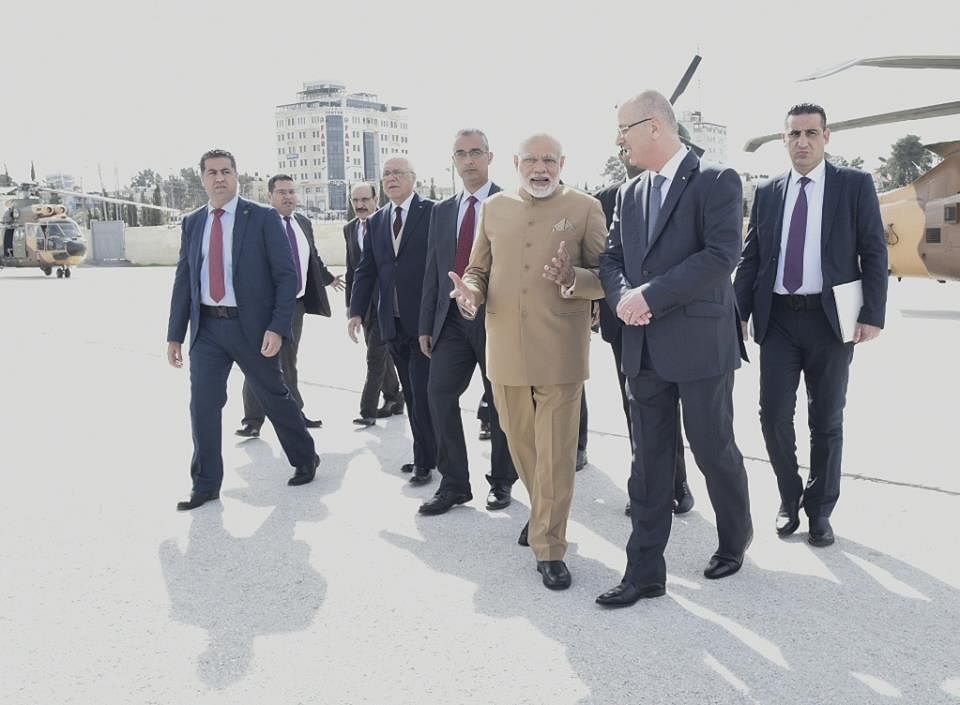Modi squandered an opportunity that the UPA never had, of improving relationships with Pakistan and China without surrendering national interest.
There are three indicators of a successful foreign policy: rutba (stature), rasookh (influence) and raub (awe). You succeed if you command more respect, love or fear. Or any combination of these.
A nation gains stature by occupying a high moral ground, by following a principle path and becoming a referee in the international Arena. A nation gains influence by making new friends and by deepening existing relationships. Awe is a function of raw power. A country gains it by adding to its military and economic might and by exercising it deftly.
How has the Narendra Modi government performed on all these three indicators? Let us examine this question in the context of India’s neighbourhood, still the principal arena of Indian foreign policy.
At least here Modi cannot complain of serious legacy issues. India’s growing economic clout and improved relations with the US had given his government a good starting point. And he began rather well by inviting all the South Asian leaders to his swearing-in. This was followed by a historic welcome in Nepal and an unusually warm meeting with the Chinese president. Yet at the end of nearly four years of his government, Narendra Modi has little to show on any of the three indicators mentioned above.
It was unrealistic, almost unfair, to expect the Modi government to follow high principles in foreign policy. In all fairness, Indian foreign policy lost its high moral ground quite some time ago. If we are embarrassed by the PM’s silence on the ethnic cleansing of Rohingyas in Myanmar, we must not forget how the UPA had made peace with the military junta in the same country. So, when the Indian government speaks for Madhesis in Nepal or Baloch people in Pakistan, it looks more strategic than principled.
No wonder India failed to protect democracy in the Maldives.
Developing better relationships with its neighbours was a more realistic and reasonable expectation. Pakistan and China were expected to be tough and proved to be so. The surprising and somewhat knee-jerk bonhomie with Nawaz Sharif soon degenerated into the worst name calling.
Similarly, the warmth generated by the visit of President Xi Jinping did not yield anything on trade or border dispute. To be fair, Modi did not make things worse. But he squandered an opportunity that the UPA never had, of improving relationships with Pakistan and China without inviting the charge of surrendering national interest.
Sadly this government failed the minimal test of maintaining relationships with our traditional friends. Even the pro-India Sheikh Hasina regime in Bangladesh found India patronising and made its differences explicit on the issue of the Rohingya refugees. Bhutan felt pushed and used by India on the Doklam issue and nearly said so.
The worst, of course, happened in Nepal where the long-standing resentment against ‘Indian imperialism’ came to the fore. Indian ways of pushing the otherwise fair demand of the Madhesi population led to border jamming and an unavoidable impression that India was forcing an economic blockade. This anxiety about sovereignty has produced Khadga Prasad Oli, the first Nepali prime minister openly hostile to India.
What about brute power? Even if we are not more respected and loved, are we at least more feared in our neighborhood? The short answer is no, unless we measure national strength by decibels in TV studios.
There is little to suggest that the PM’s loud signals on Balochistan have made Pakistan more vulnerable there. Similarly, there is no evidence that the much publicised ‘surgical strikes’ have made our borders more secure. If anything, the evidence points to more frequent border incursions and much higher casualties on our side.
As for Doklam, the jury is still out. From what we know, the Chinese army is planning a comeback with better fortification. In any case, we have not managed to counter the Chinese strategy of encirclement.
So, at the end of the day, or almost there, this ‘nationalist’ government had added neither rutba nor rasookh nor raub to India’s presence at the global stage.
The lesson is clear: You cannot replace IR (international relations) with PR (public relations). Foreign policy cannot be replaced by gimmicks, sustained action cannot be replaced by dazzling optics, relationships cannot be built by bullying, and national security cannot be achieved with nationalist bluster. Diplomacy is a subtle art. And subtlety is one thing our prime minister cannot be accused of.
